
PRESS RELEASE BY THE CISG OF THE UNIVERSITY OF BONN
Discussion at Global Media Forum 2018 with Prof. James D. Bindenagel, Dr. Ahmed Shaheed and Prof. Dr. theol. Dr. phil. Thomas Schirrmacher
On June 12, 2018, the Center for International Security and Governance (CISG) and the International Institute for Religious Freedom (IIRF) hosted a panel discussion at the Global Media Forum of Deutsche Welle.

Ahmed Shaheed and Thomas Schirrmacher in discussion © BQ/Warnecke
Focusing on religion, the question to be dealt with was if religion is cause or cure for social inequalities. Therefore, Dr. Ahmed Shaheed (UN Special Rapporteur on Freedom of Religion or Belief) and Prof. Dr. theol. Dr. phil. Thomas Schirrmacher (Director of the IIRF) – two experts on religion and human rights – discussed this issue. Prof. Bindenagel was not able to attend but sent a video message which was shown at the beginning.
Religion can be more attractive than politics
In this video he clarified that religion has a security component and, moreover, that at its center emotions play a crucial role. The relevance of emotions was also elaborated by Schirrmacher saying that it can make religion a constitutive factor for identity-building. Due to the emotional aspect, religion can be more attractive to people than politics, as Shaheed put it. This view points at beneficial aspects of Christianity, Islam, Judaism etc. Shaheed, moreover, emphasized historical developments and the role of religion in it: the ideas of social justice, dignity, and human rights which are inherent to belief-systems.
Religion can also act as a catalyst for violence
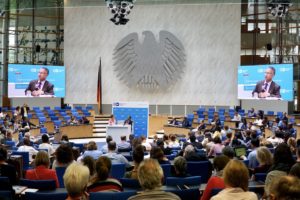
Ahmed Shaheed speaks in the plenary hall of the former German parliament at the Global Media Forum © BQ/Warnecke
Besides being an initial point of dignity, human rights etc. and a corrective to politics, religion, however, can also act as a catalyzer of violence, said Bindenagel. Contrary to the array of positive aspects discussed beforehand, emotions also have the potential of being misused. Religious leaders are inveigled to employ common believes as a tool for exclusion, oppression and manifestation of social inequalities. Shaheed emphasized that inequalities are not inherent to religion but are frequently used by religious authorities.
Religious influence increases
Following Schirrmacher, religious influence – partially extremist – has increased over the last years and Shaheed observed that tolerance for other religious groups heavily depends on the authorities. Nevertheless, history shows that religion is often an anchor for peace-building. Hence, Shaheed in his position as an UN-observer stresses the need for saving the right to practice religion but not religion itself.
In a nutshell

Ahmed Shaheed and Thomas Schirrmacher in discussion © BQ/Warnecke
In a nutshell: What is the appropriate respond to the earlier mentioned question? As Prof. Bindenagel revealed at the beginning religion can be both cure and cause of violence and inequalities. Shaheed adds that the image of religion – first and foremost of Islam – is negative at present although only individual cases underline this assumption. However, perceptions change over time and it is highly important that belief-systems do not stand above international law.
- Ahmed Shaheed and Thomas Schirrmacher in discussion © BQ/Warnecke
- Ahmed Shaheed and Thomas Schirrmacher in discussion © BQ/Warnecke
- Ahmed Shaheed and Thomas Schirrmacher in discussion © BQ/Warnecke
- Prof. James D. Bindenagel’s video message at the Global Media Forum © BQ/Warnecke
- Ahmed Shaheed speaks in the plenary hall of the former German parliament at the Global Media Forum © BQ/Warnecke
- Ahmed Shaheed speaks in the plenary hall of the former German parliament at the Global Media Forum © BQ/Warnecke
- Ahmed Shaheed speaking © BQ/Warnecke
- Ines Pohl, editor-in-chief of Deutsche Welle (center), who discussed with Ahmed Shaheed in the plenary hall © BQ/Warnecke
- Thomas Schirrmacher and Ahmed Shaheed with Afghanistan’s foreign minister Zalmai Rassoul (center) © BQ/Warnecke
- Thomas Schirrmacher and Ahmed Shaheed with the former President of Afghanistan Hamid Karzai © BQ/Warnecke
- Display panel for the workshop © BQ/Warnecke
- Display panel for the workshop © BQ/Warnecke
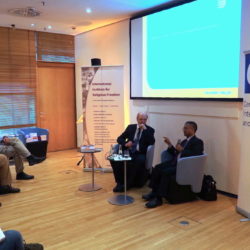
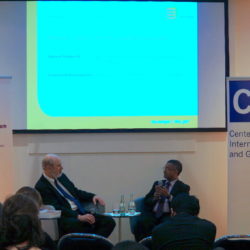

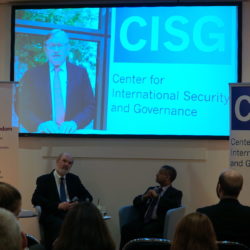

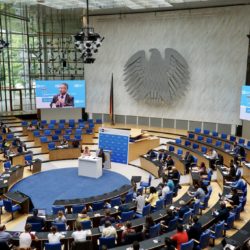
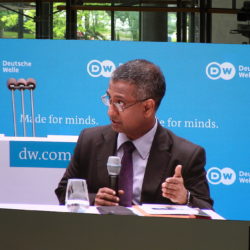
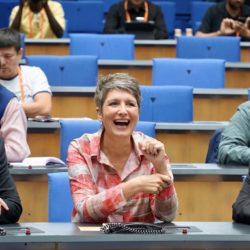
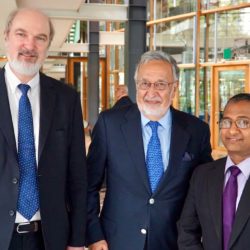

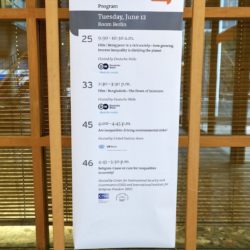
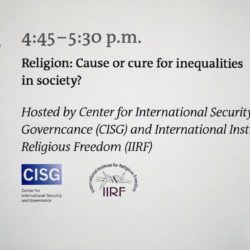
Leave a Reply